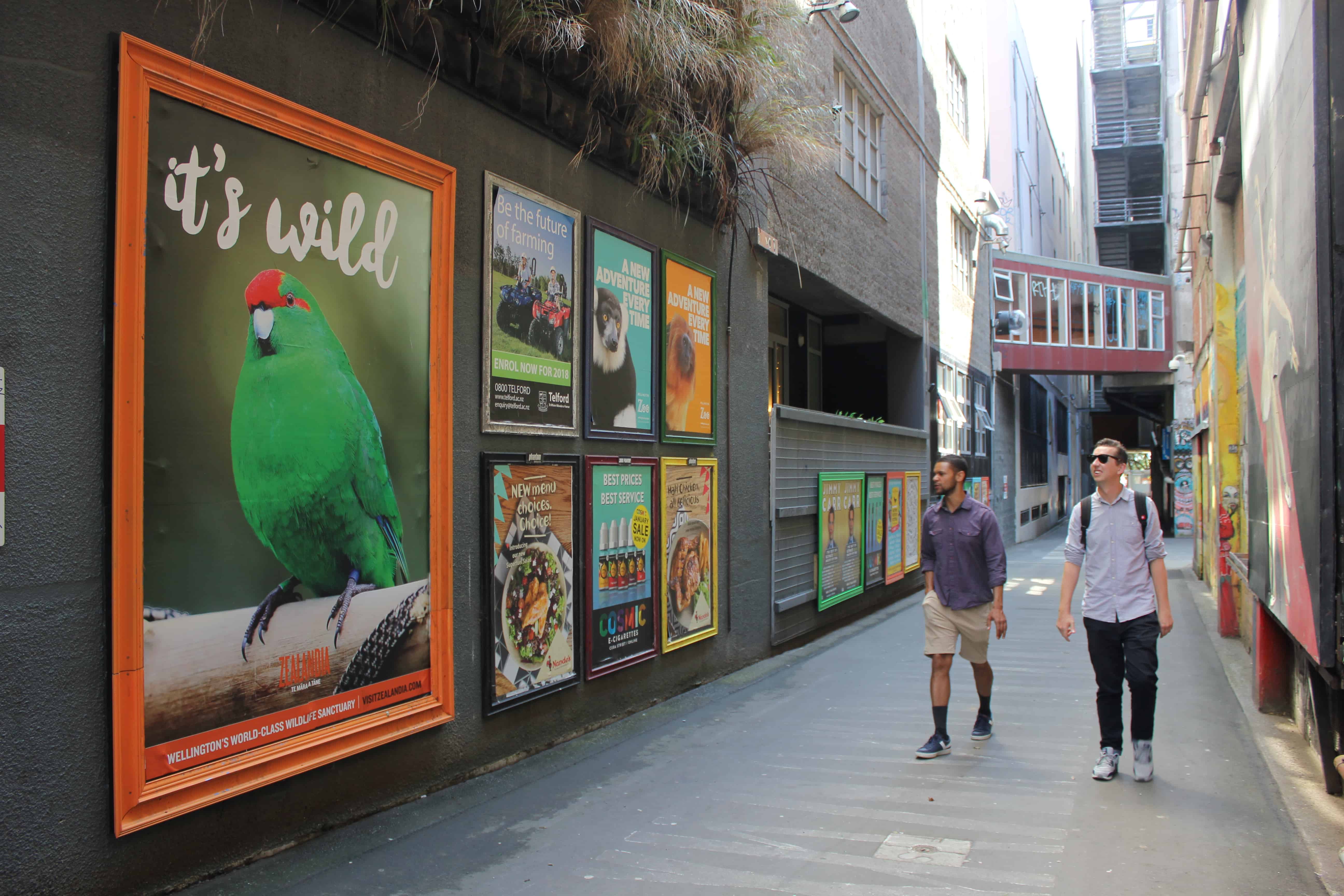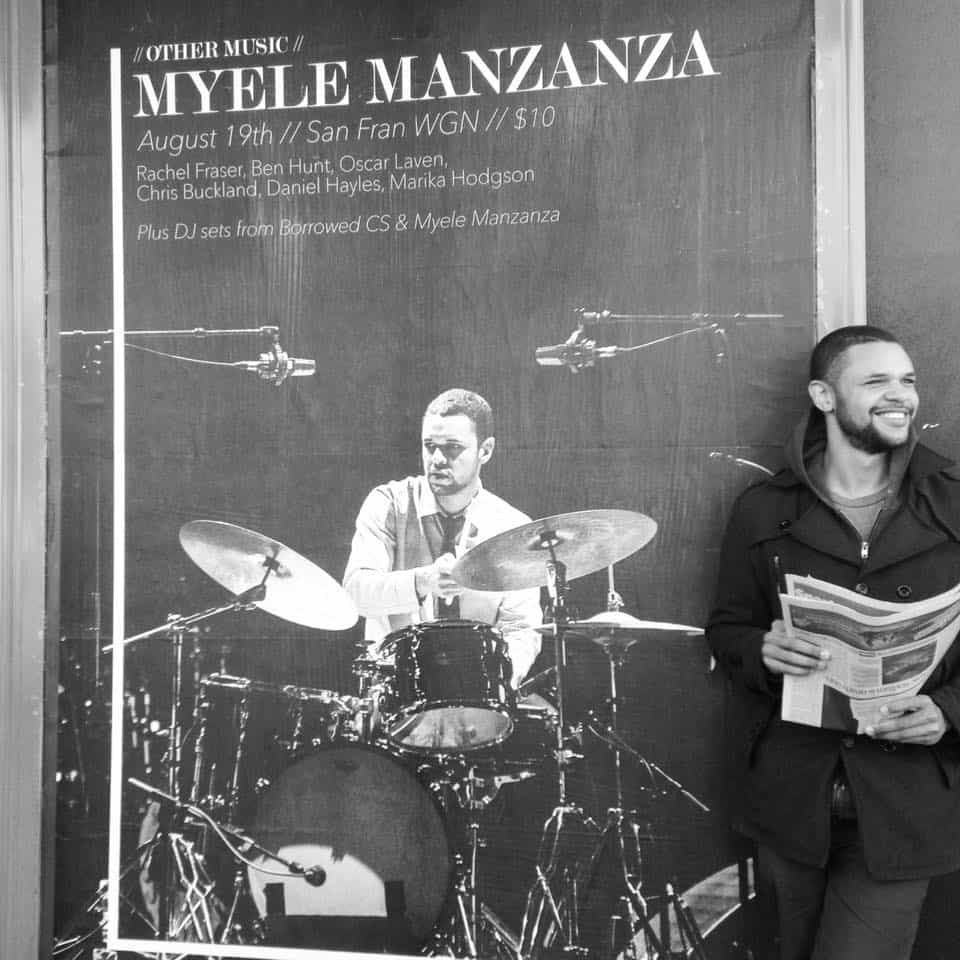Making music, booking sites and defusing punch-ups in Wellington.
Myele Manzanza is Phantom Billstickers’ Wellington Manager. Like many of our team, Myele has multiple talents and a passion for the arts. Sometimes you’ll find him making music and touring the world, but you’re equally likely to find him negotiating with landlords for new street poster sites.
Myele shares his thoughts on de-escalating fights with angry groundskeepers, why offering landlords free money isn’t always enough, and how clients can make a bigger splash in New Zealand’s creative capital.
What’s your official title at Phantom Billstickers?
Chief Diplomat, Wellington Bureau, or Wellington Area Manager. But what’s in a name anyway?
How did you come to be working for Phantom?
I’d been working part-time for Phantom for four years, taking flyers and posters around Wellington cafes and other outlets. Throughout that time, and still to this day, I’ve been maintaining an active music career. I’ve been able to tour and travel the world on a whim, but still have a job to come back to, and make sure the rent’s covered.
Earlier this year I took on the Wellington Area Manager role, which has definitely been a step up, but it’s the challenge I needed.
Take us through a typical day on the job.
Probably the best thing about this job is that there isn’t really a typical day.
The biggest part where I’m adding value is site development. Finding wall space that I think would work, figuring out who the owner is, and getting it signed up.
It seems simple enough as I’m giving landlords free money for something that doesn’t require them to do any work, but there are many different motivating factors. At root there’s a financial incentive, but it’s also been fascinating on a psychological, economic and social level to see how different people think about money, property, business, advertising and aesthetics. That’s where the diplomacy part of the job comes in.
I’m fortunate that the team is at a point now where day-to-day operations can more or less run themselves. This frees me up to be more outward facing and find ways to move things forward.
What’s the weirdest challenge you’ve faced?
I won’t name names or locations, but there was one groundskeeper who got physical with one of our pasters after a dispute over ladders, glue and property rights. It started to veer into strange racist and abusive terrain. Some personalities are trickier than others but we got to a workable solution in the end.
Any tips for clients, to help them get more bang for their buck?
The A3 format is a cost-effective way to get lots of little pings all over the place, especially for the independent arts and events. While bigger posters have a more obvious impact, if you’ve got 100 or 200 A3 posters around the city, the cumulative effect is pretty powerful.
What’s it like working for Phantom?
There’s a culture of relaxed-but-onto-it energy that I enjoy. We don’t wear suits but we get shit done. Also, since moving into the manager’s role I’ve learnt a lot about business from Rob, Jamey and Jim. They’ve been good mentors who’ve been able to offer guidance, kick my ass when needed, as well as give me room to figure things out and find my own voice in the organisation.
What are your thoughts on Wellington?
For a city that trades on being the creative capital, the actual creatives have minimal capital. The talent is definitely there but it’s a small city so the opportunities to take it to a level where it can be sustained as a career are pretty limited.
It means the city has a lot of wasted potential, either with brain drain where the talent has to go overseas to get recognition or make decent money or with ‘bankruptcy’ where the artist has to find other work to sustain a life. In my case, I’ve fallen into both categories.
One of the reasons Phantom makes sense for me is that our principles align, in helping artists communicate what they’re doing. Whether it’s being able to hook up 25 A3s for free, through to taking care of big commercial clients that give us the financial headroom to keep things affordable for artists. It’s a tough balance to strike but I think Phantom makes a pretty good go of it.


